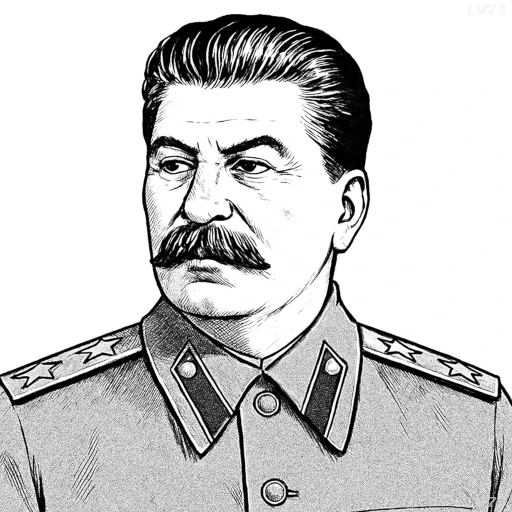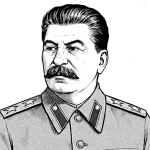“We don’t let them have ideas. Why would we let them have guns?”

- December 18, 1878 – March 5, 1953
- Born in Georgia
- Politician
table of contents
Quote
“We don’t let them have ideas. Why would we let them have guns?”
Explanation
This quote reflects a core aspect of Stalin’s totalitarian mindset, where both ideological and physical control were viewed as essential to maintaining the regime’s power. By stating that “we don’t let them have ideas”, Stalin is emphasizing the importance of suppressing any form of dissent or opposition, particularly ideological threats. In his view, the control of thought and belief was just as crucial as controlling physical power. He feared that allowing his political enemies or perceived traitors the freedom to think freely could undermine the Soviet system and inspire rebellion. This fear of subversion led to widespread censorship, the persecution of intellectuals, and the centralized control of information.
Stalin’s regime was notorious for silencing opposition through both ideological repression and violent means. The phrase “Why would we let them have guns?” serves as a metaphor for his belief that once you have silenced an enemy’s thoughts, their physical capacity to resist—symbolized by weapons—becomes inconsequential. Stalin’s purges and the Great Terror exemplified this mindset, where people were executed, imprisoned, or sent to labor camps not only for physical resistance but for daring to entertain alternative ideas. The regime’s crackdown extended far beyond the military and the economy to control culture, art, and free thought.
In the broader context, this quote speaks to the danger of any regime that seeks to control both minds and bodies of its citizens. It serves as a reminder of how ideological oppression can be just as devastating as physical violence in limiting freedom and preventing peaceful societal progress. Today, the quote underscores the importance of intellectual freedom and the need to protect both the right to think independently and the right to resist unjust systems. It also highlights the dangers of unchecked power that seeks to dominate all aspects of life, making it crucial to safeguard the freedom of speech and the protection of human rights in the fight for a just society.
Would you like to share your impressions or related stories about this quote in the comments section?
